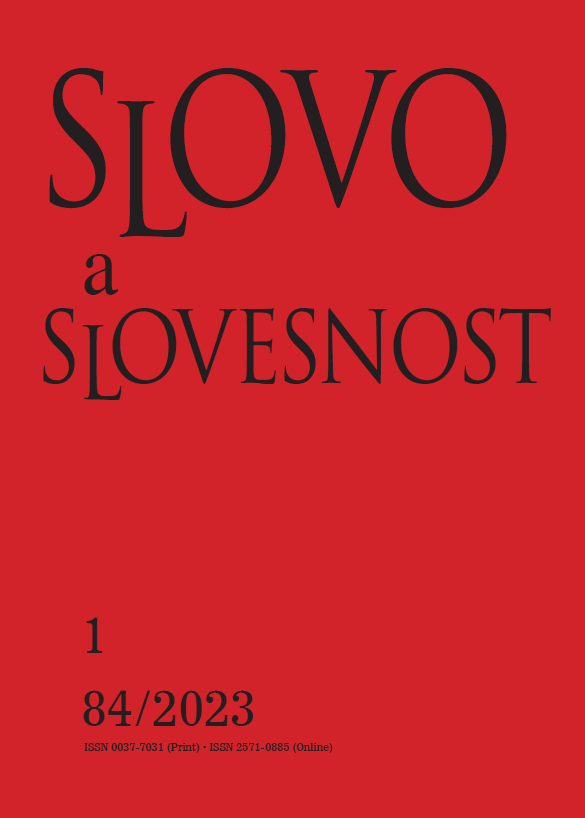Substitúcie situačných aktantov v slovenčine
Substitutions of situational actants in Slovak
Author(s): Martina IvanováSubject(s): Language studies, Language and Literature Studies, Western Slavic Languages, Philology
Published by: AV ČR - Akademie věd České republiky - Ústav pro jazyk český
Keywords: substitution; situational actant; complement coercion; underspecification; construction productivity; metonymy; inceptive phase verbs; psychological verbs; collostructional analysis
Summary/Abstract: The term substitution refers to the process during which situational actants selected by a verb are substituted by expressions with non-situational meaning. In the paper, the investigation of substitution processes is focused on two groups of verbal units: (i) phase verbs with inceptive meaning which enable the substitution of object actants and (ii) psychological verbs of two types: (a) type ‘trápiť’ ‘worry’, and (b) type ‘mrzieť’ ‘feel sorry for sth.’ which enable the substitutions of subject actants. On the basis of corpus data, collocational preferences are stipulated for phase verbs with inceptive meaning and a collostructional analysis is used to calculate the mutual attraction of substituted non-situational nouns and the given type of microconstruction in order to build up a detailed picture of correlation between corpus frequencies and degrees of entrenchment concerning the various semantic groups of nouns. At the same time, cognitive and pragmatic (contextual) factors determining the interpretation of sentence structure with substituted actants are closely investigated. On the other hand, the corpus data reveal that no such attractions can be specified within the group of psychological verbs, which shows that in the case of these verbal units, substitution is better described in terms of a pragmatic process.
Journal: Slovo a slovesnost
- Issue Year: 84/2023
- Issue No: 1
- Page Range: 26-55
- Page Count: 30
- Language: Slovak

